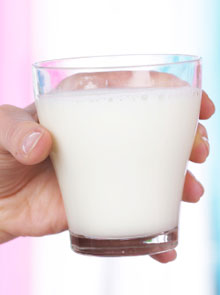Our gut instinct says we should buy organic foods, and most wellbeing experts agree. If you want to reduce your exposure to harmful pesticides, hormones and antibiotics, then organic answers that.

But to make buying organic foods more economical, we have to be careful to cut food waste, and pick and choose where we spend extra. So how do different foods stack up for nutritional benefits and taste – when it comes to organic?
Food: Salad/tomatoes
Organic or not? Conventionally grown salad is sprayed continually, so choose organic to avoid residues. Tests show that organic tomatoes have more vitamin C, beta-carotene and flavonoids.
What about taste? Our food team always goes for whole, fresh salad, organic or not. Bagged salads are tasteless, as they’re washed so much for health and safety. The team’s pick for flavour? Whole, home-grown or farmer’s market!
ALSO SEE: 7 natural foods to give you flawless skin
Food: Chicken
Organic or not? Avoid antibiotics and hormones with a free-range organic bird. Organic chicken also has 25% less fat, as well as higher levels of polyunsaturated fatty acids and more omega-3 than non-organic.
What about taste? Recipe developer and food expert, Anna Montali reckons that free-range chickens, preferably organic, have the edge. It’s all about how they’re reared and looked after, she says.
Food: Red meat
Organic or not? Depends on the meat. Thankfully, no one has found a way to factory farm lamb, so they always roam free and graze naturally, but with pork and beef, it’s all down to good animal welfare.
What about taste? Somehow, lamb tastes good, regardless. But when it comes to pork and beef, South African and organic or free-range has the best flavour. If price is a problem, choose better but eat meat a little less often.
ALSO SEE: 5 tips to help you stay healthy on a budget
Food: Root veggies
Organic or not? Past tests revealed high levels of pesticide residue in carrots and potatoes, so switch to organic if you’re concerned. There’s no evidence about it’s effects on our health, but you may prefer to be cautious.
What about taste? Our food team reckon there isn’t much difference in flavour, except for organic carrots, which they all felt tasted better. As for the rest, they go for whatever is freshest, best and definitely seasonal.

Food: Dairy
Organic or not? Milk is an organic success story. Studies show that full-cream organic milk has more omega-3 fatty acids, vitamin E and beta-carotene than non-organic. Skimmed organic doesn’t have these same nutrients.
What about taste? Full-cream milk tastes alot nicer than skimmed, but there isn’t a lot to choose between organic and non-organic. Organic butter doesn’t taste any better, but if you like the idea of organic animal welfare, then go for it.
Food: Fruit
Organic or not? Fruit is the target for an incredible amount of pesticide spraying. Everything from apples (sprayed about 22 times) to strawberries, is given the treatment. So if it worries you, make the switch.
What about taste? Our food team chooses SA seasonal fruit from farmers’ markets, and box schemes for smaller, more flavourful varieties.
Food: Bread/rice/pasta
Organic or not? All non-organic grains are pretty heavily sprayed and if you think about the small surface area of wheat and oats, you may want to opt for organic.
What about taste? It’s down to the way it’s produced. Bread produced in small batches, using organic flours, tastes better. Mass produced, with or without organic flour, tastes the same.
ALSO SEE: Try out the raw food diet plan
